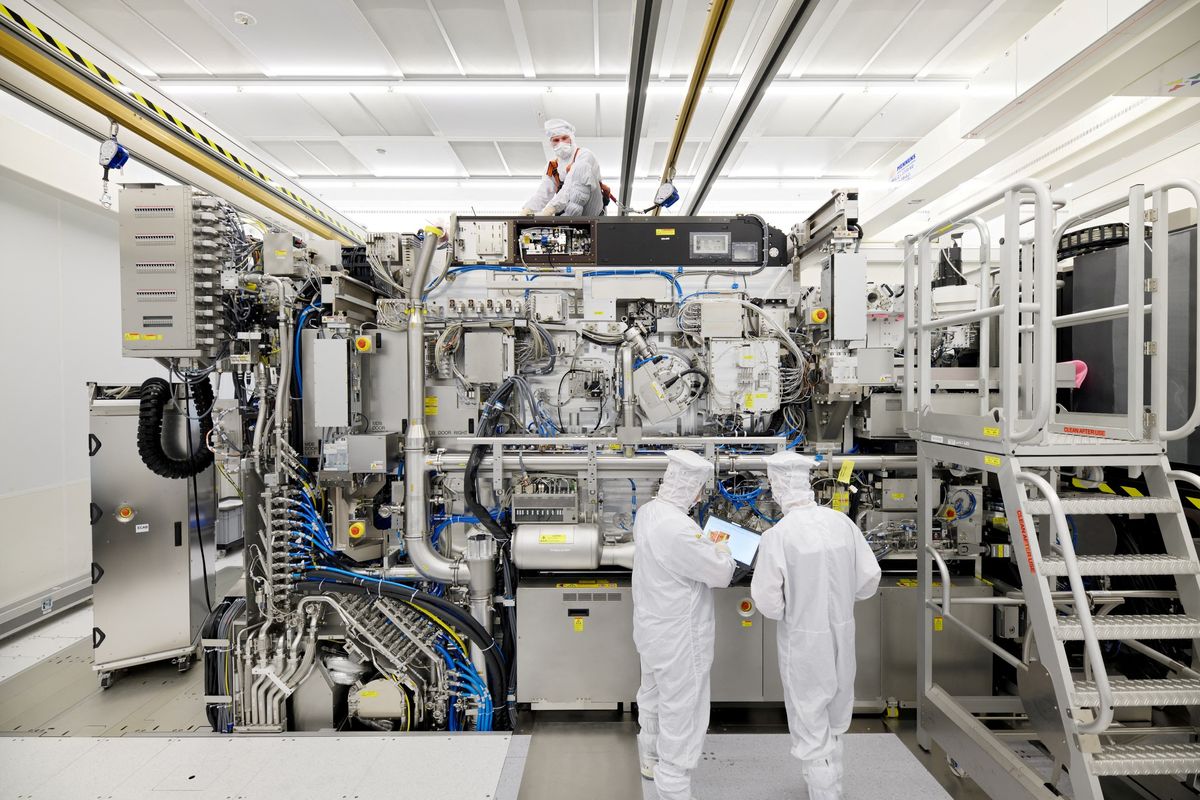ASML faces new export restrictions on chipmaking machines to China
In March, the Netherlands announced plans to tighten the export of crucial chipmaking tools.

A few minutes every morning is all you need.
Stay up to date on the world's Headlines and Human Stories. It's fun, it's factual, it's fluff-free.
The backstory: ASML Holding, Europe's top tech company, is a big shot in the chip supply chain, making those essential tools for advanced semiconductor production. Now, the thing is, Chinese chipmakers can't get their hands on ASML's gear. Because of that, Chinese companies will have a tough time making advanced chips.
Why is that? Well, the US slapped a ban last October on selling Chinese companies advanced chips and the equipment to make them without a special license (on top of other restrictions). Meanwhile, Dutch Prime Minister Mark Rutte has been under pressure to follow suit. The US wants his government and others to join its global plan to hold back China's chip industry’s progress. But on the other hand, ASML relies on China as one of its top customers. But, so far, the Netherlands and Japan had agreed in principle to jump on the US bandwagon.
More recently: In March, the Netherlands announced plans to tighten the export of crucial chipmaking tools. It planned to put additional restrictions on selling chip manufacturing equipment abroad. That means it would be even harder for China to get its hands on the technology it needed to boost its chip industry. The deal includes controls on critical chipmaking tech from the Dutch giant ASML.
So, which models are facing the squeeze? We're talking about the TWINSCAN NXT:2000i, NXT:2050i and NXT:2100i, according to people familiar with the plans. These are immersion deep ultraviolet lithography (DUV) models, in case you're wondering. These models bring a high level of precision and detail to chip production. But ASML was already banned from selling its most cutting-edge tech, extreme ultraviolet lithography, to Chinese firms. So, these are just the next step below.
The development: Now, the Dutch government is reportedly planning to publish these new restrictions on exporting ASML's chipmaking machines, which would go into effect as soon as June 30, according to insiders. The thing is, the government is not explicitly singling out China or ASML, but the new rules are aimed at preventing the sales of three specific models of the company’s machines to China. The laws are also expected to serve as a blueprint for other EU member states if they decide to make similar moves. ASML has previously said the measures will “not have a material effect on our financial outlook” for 2023 or in the longer term.
Key comments:
"The Netherlands considers it necessary on national and international security grounds that this technology is brought under control as soon as possible," said Dutch Trade Minister Liesje Schreinemacher in a letter in March.
"Because the Netherlands considers it necessary on national security grounds to get this technology into oversight with the greatest of speed, the Cabinet will introduce a national control list," Schreinemacher's letter said, according to Reuters.
"The more you put them under pressure, the more likely it is that they will double up their efforts" in building lithography machines that can rival those of ASML, said Peter Wennink, ASML's CEO, to Bloomberg in January, referring to the pressure to curb Chinese access to advanced equipment.
“We are firmly opposed to the Netherlands’ usage of administrative means to intervene and limit normal economic and trade exchanges between Chinese and Dutch companies,” Chinese foreign ministry spokesperson Mao Ning said during a media briefing in comments reported by Reuters.




Comments ()